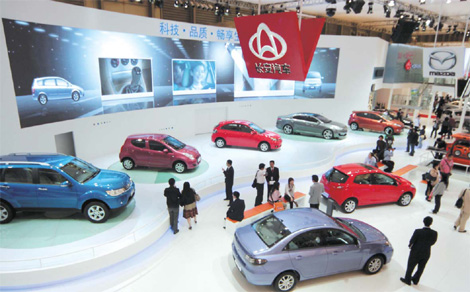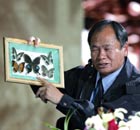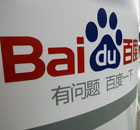Top Biz News
New policy to encourage carmaker consolidation
By Xiao Han (China Daily)
Updated: 2010-02-22 09:38
 |
Large Medium Small |
 |
|
Through an acquisition deal with Aviation Industry Corp last year, Chang'an Auto closed the biggest asset deal between State-owned auto enterprises. [China Daily] |
The central government plans to implement a new policy in the first half of this year to encourage auto industry consolidation and further the development of Chinese-brand passenger vehicles, an official from the Ministry of Industry and Information Technology said at a recent news conference.
According to sources with knowledge of the new policy, it intends that Chinese-brand passenger vehicles will comprise at least half of vehicle sales by 2015 and sedans made by entirely domestic automakers will have about 40 percent of the nation's car market.
Statistics from the China Association of Automobile Manufacturers (CAAM) show that 4.58 million Chinese-brand passenger vehicles were sold last year, some 44.3 percent of the total.
Sales of domestic sedans hit 2.22 million units, almost 30 percent of the segment.
The new policy will also focus on accelerating consolidation between automakers and could lead to a new round of reshuffling, industry insiders said.
China became the world's largest auto producer and market last year with both production and sales surpassing 13.5 million vehicles due in part to government incentives.
There are now more than 130 carmakers across the country, but most of them are small enterprises with annual production and sales of fewer than 10,000 units.
Only five had sales of more than 1 million units last year as the country's top 10 carmakers moved a total of 11.89 million vehicles to account for 87 percent of overall sales, according to market data.
Consolidation moves
Last year, Chang'an Motor Corp acquired two minivan makers - Hafei and Changhe - as well as engine producer Dong'an Auto from the Aviation Industry Corp of China (AVIC), marking the biggest asset deal ever between State-owned auto companies.
Chang'an is the fourth-largest motor group in China and the local partner of US carmaker Ford Motor and Japan's Mazda and Suzuki. After the acquisition, Chang'an's 2009 sales were only 30,000 units behind Dongfeng, the country's third-largest motor group.
Guangzhou Automobile Group Corp, the country's sixth-biggest automaker, bought a 29 percent stake of Shanghai-listed SUV maker Changfeng Motor Co Ltd for 1 billion yuan in May last year.
By 2012 policymakers hope consolidation will result in two to three large-scale auto groups, each with annual production capacity surpassing 2 million units, and four to five companies with annual output of more than 1 million vehicles, according to the national auto industry revitalization plan released in March last year.
The current top-four Chinese motor groups are SAIC Motor Corp, FAW Group, Dongfeng Motor and Chang'an Motor. Carmakers including Beijing Automobile, Guangzhou Automobile, Chery, Geely and Sinotruk form the second tier in the country's auto industry.
Going global
Industry sources said that the new policy calls for 20 percent of overall sales by major auto groups to be generated overseas in the next few years.
In the wake of the financial crisis, China's vehicle exports fell sharply by 45.7 percent to 369,600 units last year, according to statistics from the General Administration of Customs. Industry analysts generally expect a rebound in car shipments this year as the foreign markets begin to recover.
Despite the poor export performance, Chinese companies were aggressive in acquiring overseas assets in 2009.
Homegrown carmaker Geely's bid for Swedish luxury brand Volvo received a lot of media exposure in 2009. The Zhejiang-based company will reportedly close the deal soon.
Beijing Automotive bought some of Swedish carmaker Saab's core assets and technologies for $200 million last year.
Li noted that along with encouraging acquisitions and consolidation, the government will restrain overcapacity in the auto industry.
Li also said that the ministry will accelerate the development of new energy vehicles, including hybrid, pure electric and fuel battery models.
The new policy will reportedly stipulate that Chinese partners hold at least a 50 percent share in newly built Sino-foreign joint ventures that produce core parts for alternative-energy vehicles.













